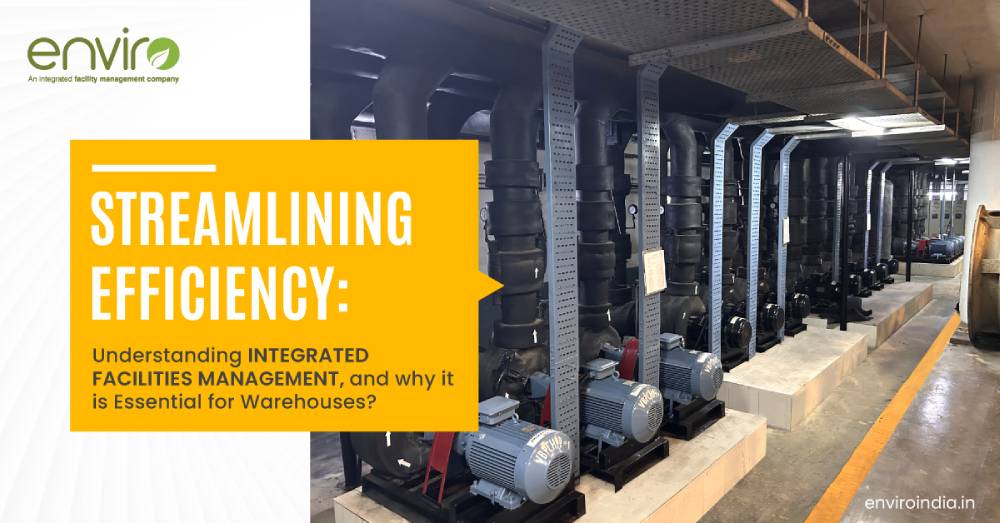In today’s fast-paced logistics landscape, warehouse efficiency reigns supreme. With rising customer demands for faster delivery times and increased product volume, warehouse operations need a well-oiled machine to function seamlessly. This is where Integrated Facilities Management (IFM) steps in as a game-changer.
The Intricacies of Warehouse Management
Warehouses are complex ecosystems juggling a multitude of tasks. Housekeeping plays a critical role. A clean and organized warehouse minimizes product damage, improves worker safety, and streamlines picking and packing processes. HVAC systems are another crucial element. Maintaining optimal temperatures ensures product integrity, particularly for temperature-sensitive goods. A malfunctioning HVAC system can lead to spoilage and significant financial losses. Regular pest control is equally important. Rodents and insects can damage inventory and contaminate products, posing health risks and regulatory concerns.
The Fragile Chain: Where Traditional Management Falls Short
Traditionally, warehouses manage these crucial aspects through individual contractors. However, this fragmented approach has its limitations.
. Communication Silos: Disparate teams may struggle to communicate effectively, leading to delays and inefficiencies.
. Data Disconnect: Scattered data from different service providers makes it difficult to identify trends, optimize operations, and make informed decisions.
. Increased Costs: Managing multiple contracts can be cumbersome and potentially more expensive than a consolidated approach.
The Power of Integration: How IFM Optimizes Warehouses
IFM offers a holistic solution by integrating all facility management services under one roof. Here’s how it empowers warehouses:
. Streamlined Operations: An IFM provider coordinates all services, ensuring seamless workflow and improved efficiency.
. Enhanced Communication: A single point of contact simplifies communication, eliminating delays and ensuring everyone is on the same page.
. Data-Driven Decisions: Integrated software platforms generate valuable data on all aspects of facility management. Warehouses can leverage this data to identify areas for improvement and make data-driven decisions to optimize operations and resource allocation.
. Cost Savings: Negotiating a single contract with an IFM provider can often lead to cost savings compared to managing multiple individual contracts.
. Reduced Risk: A comprehensive preventive maintenance program minimizes the risk of HVAC breakdowns or pest infestations, protecting inventory and minimizing downtime.
Beyond the Basics: Additional Benefits of IFM
IFM offers a wider range of benefits that cater to the evolving needs of modern warehouses:
. Sustainability Initiatives: IFM providers can implement sustainable practices such as energy-efficient lighting systems and waste management solutions, contributing to a greener warehouse operation.
. Safety and Compliance: IFM ensures adherence to safety regulations and compliance standards. This reduces the risk of accidents and hefty fines.
. Employee Well-being: A clean, safe, and well-maintained warehouse environment fosters a positive working environment and improves employee morale.
. Scalability: IFM solutions are scalable to accommodate changing warehouse needs. As your warehouse expands or contracts, the IFM provider can adjust services accordingly.
Conclusion: The Future is Integrated
In today’s competitive warehousing landscape, efficiency is paramount. Integrated Facilities Management offers a holistic approach that streamlines operations, optimizes costs, and minimizes risks. By integrating all aspects of facility management under a single umbrella, IFM empowers warehouses to achieve peak performance and ensure a future of smooth and efficient operations.





 WhatsApp Business +91 88000 09776
WhatsApp Business +91 88000 09776
 CSC
CSC  WhatsApp Business
WhatsApp Business 